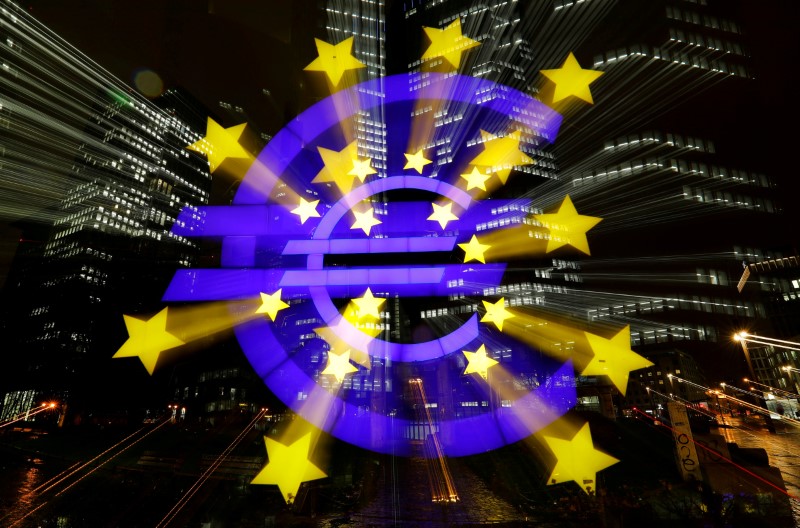By Robert-Jan Bartunek
BRUSSELS (Reuters) - Economic sentiment in the 19-countries sharing the euro slipped for the third month in a row in March, data from the European Commission showed on Tuesday, suggesting economic growth in the bloc was not as steady as previously thought.
The Commission's Economic Sentiment Indicator fell to 112.6 in March from a revised 114.2 in February, below the average forecast of 113.4 in a Reuters poll of 34 economists.
The downbeat reading of economic sentiment paired with falling inflation expectations for consumers and manufacturers alike, as well as earlier data suggesting loan growth and money supply in euro zone had also slowed, kicked the euro off a five-week high.
Frictions between the West and Russia and trade restrictions imposed by U.S. President Donald Trump have spooked markets in recent weeks and appear to have also left their mark on managers and consumers in the real world, analysts said.
The European Central Bank recently said that euro zone growth may even outperform expectations in the near term, but the sentiment data is a further indication of a weakening trend, after business morale in Germany, the bloc's largest economy, fell to an 11-month low last week.
"While the economy continues to perform strongly, some clouds have re-emerged on the horizon," analysts at ING wrote in a note to clients.
The Commission expects the euro zone economy to increase by 2.3 percent this year after 2.4 percent growth in 2017.
The euro zone economy is still propped up by the ECB buying some 2.5 trillion euro (2.2 trillion pound) worth of debt over the past three years, which has helped growth but has done little to boost inflation, which remains well under the central bank's target of close to but below 2 percent.
Declining economic sentiment in the euro zone fall was caused by declining optimism among managers in the manufacturing, services and retail sectors, while the construction sector showed a small improvement in sentiment.
In the retail sector, where the fall was sharpest, respondents gave a more negative assessment of the present business situation and their outlook for orders and employment.
Consumer sentiment was unchanged in March, compared to February, the Commission said, confirming an earlier flash estimate.

The Commission's Business Climate Indicator, which points to the phase of the business cycle, also fell by more than forecast in March to 1.34 from 1.48 in February.